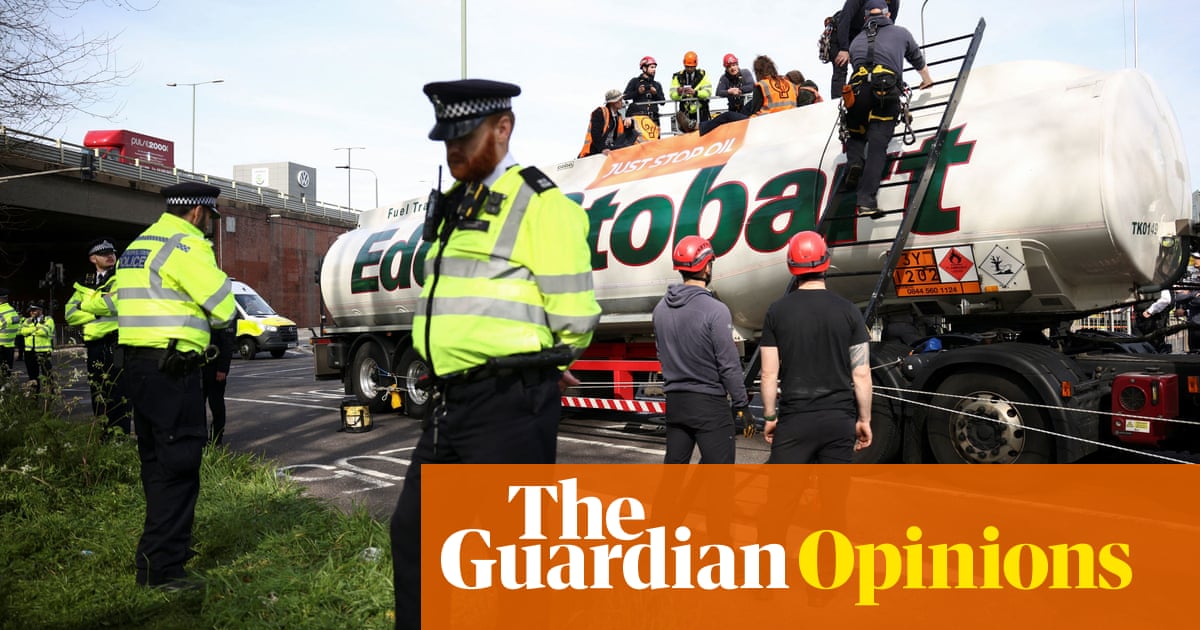When we beat the Conservative government over its anti-democratic protest laws in court last year, we thought that would be the end of the story. Judges in the high court hadmade it very clearthat laws that gave the police almost unlimited powers to crack down on any protest that caused “more than minor” disruption were unlawful. It orderedthat the laws should be scrapped. We celebrated. Given that the incoming Labour government had voted down these very same laws a year earlier, we believed that protest would be taken out of the culture wars arena and putback into the sacred space of fundamental rights.
Yet Labourdragged us backto court, in a misguided attempt to be seen to look tough on public order. And now today, on a day of much Labour soul-searching,we’ve won again. A unanimous court of appeal victory that, alongsidechastening election results, must now trigger a total Labour rethink on how we treat protesters in this country.
Five different judges over two separate hearings have made it clear: these anti-protest laws were a flagrant abuse of power and quite simply should never have existed. Ministers cannot step outside the law to do whatever they want to shut down causes they don’t agree with.
These laws we defeated today were introduced in a toxic climate. The previous government made it its mission to stifle protest movements it didn’t like. Even when this regulation itself was created, the Conservative governmentspecifically namedclimate protesters as those they were targeting, even though the change in law impacted everybody. This is a dangerous way to do politics, and has led to hundreds of protesters being wrongly arrested under a law that should never have been created in the first place. Whether or not you agree with a protest cause – environmental justice, Palestine solidarity, farmers’ inheritance tax, the closure of your local library – laws that chip away at protest do damage to them all.
The “more than minor” regulations are just one of many laws the last Conservative government created that narrowed the space for protest in this country. In the Police, Crime, Sentencing and Courts Act 2022, laws were created that were so broad that a protest could be shut down for simplybeing too “noisy”. In 2023, the Conservative government’sPublic Order Actwent even further, and brought in powers that have led to arrests for carrying any material that might be used tolock on, a common tactic used throughout history (such as by the Suffragettes), even if an act of protest has not happened yet. Things have shifted so much that we’re now in the farcical situation in which protesters in many cases are now unable to tell a judge aboutwhy they protestedin the first place.
These laws are far reaching and have real consequences. A record number of protesters spent last Christmasin prisonbecause of anti-protest laws. Journalists have been wrongly caught up covering protests and wrongfully held in custody because policeassumed they were protesters. This is unsustainable, and is damaging the basic principles of our free speech and democracy in this country.
And the assault continues. Going through parliament right now is a proposal to ban the use of face coverings at protests – a plan Labour has copied almost word for word from a bill theConservatives introducedlast year. What message does this send to those who rely on face masks to protest safely, such as Hong Kong dissidents who want to protest outside the Chinese embassy, or disabled activists protesting cuts in their benefits?
Today’s ruling shows that the previous government’s approach was wrong – and now the Labour government must learn from its predecessors’ mistakes and change tack.
This should serve as a wake-up call for Labour. It must accept this ruling and scrap the laws for good. We now urgently need a review of all thehundreds of arrests that happened under this law. And we need a complete review of all protest legislation that was made over the past few years.
Quite simply, we need a new approach. Protesting brought us votes for women, the right to a weekend and Pride. Surely, that alone is reason enough to stop playing politics with the right to protest, and get back to being a country that isserious about protecting democratic freedoms.
Akiko Hart is the director of the human rights organisation Liberty
